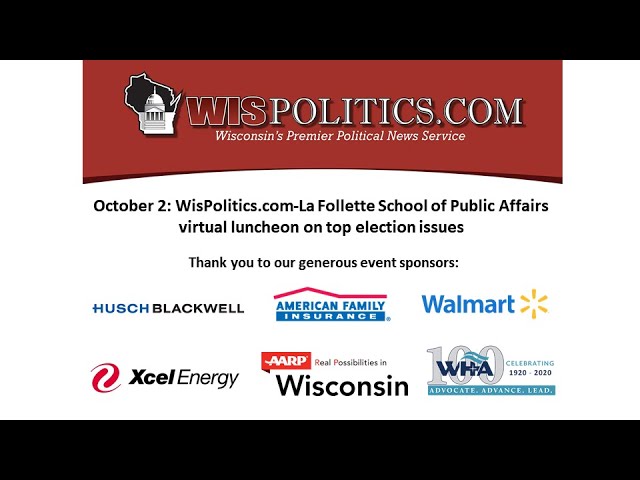Home » Battleground Wisconsin » BG WI Newsletter » La Follette Institute panel examines top election issues

President Trump's coronavirus case is one reason healthcare will be the top issue for many voters this year, a UW-Madison professor told a WisPolitics.com event. “This will certainly impact public appearances and campaign rallies and any future debates that we may have been looking to see,” said Christine Durrance, an associate professor of public affairs at the La Follette Institute. “I think tha...